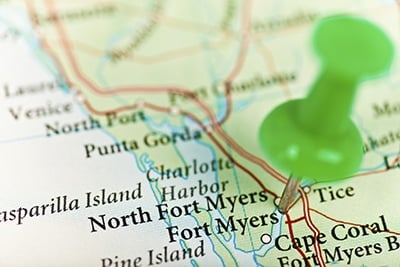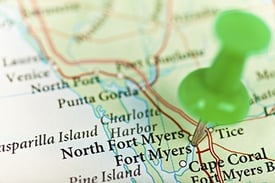Explore Springs Apartments

 By the time you read this, we hope that the worst of hurricane season 2017 is subsiding along with the floods of hurricanes Harvey, Irma, Jose and Katia. But it may be a long time before residents of Southwest Florida and other areas damaged by these storms recover equilibrium and rebuild.
By the time you read this, we hope that the worst of hurricane season 2017 is subsiding along with the floods of hurricanes Harvey, Irma, Jose and Katia. But it may be a long time before residents of Southwest Florida and other areas damaged by these storms recover equilibrium and rebuild.
If you can afford a donation toward relief efforts or have friends and family outside our region who would like to make a contribution, we have some suggestions about how to choose a charity and what to give.
Our first tip is to select established relief organizations and verify the reliability of any to which you donate. Make sure they have a good record of providing effective help and spending donations on aid instead of administration. One way to vet charities is through rating websites such as Charity Navigator, Charity Watch and Guidestar.
Financial donations are best, especially in the immediate aftermath of disaster. That's the word from Charity Navigator and organizations such as Consumer Reports and the Center for International Disaster Information (CIDI). All stress that donations of food, clothing and other goods are difficult to store and deliver following an event such as a hurricane.
CIDI emphasizes, "Financial contributions allow professional relief organizations to purchase exactly what is most urgently needed by disaster survivors, when it is needed." It adds that when relief organizations request material donations, they provide specific lists of items needed.
Churches sometimes have ongoing disaster supply programs. One example is the cleaning bucket kits coordinated by the United Methodist Committee on Relief, an organization Charity Navigator gives top (four star) rating.
Charity Navigator offers a useful tip sheet for donations, including information about designating contributions for the causes you want to aid and tracking how your money was spent. It emphasizes considering the scope of each charity's work. For example, first responders that provide medical assistance and emergency shelter generally aren't involved in rebuilding homes, rescuing animals or running food banks.
In addition to giving money, Consumer Reports suggests donating blood. You can find a local blood drive or blood bank through the American Red Cross website.
Here is a list of reputable relief organizations (organized alphabetically) that are first to arrive when disasters strike. Each is linked to its Navigator profile page, which contains a donation button.
Once again, cash donations are the best choice. Food banks know what goods their populations particularly need and can make discount purchases in bulk.
Many people shelters don't accept animals. That's one reason why so many pets are stranded during disasters. Animal rescue organizations network across the nation to help each other when shelters become crowded during disasters. Here are some helping pets who survive hurricanes.
When floodwaters disappear, debris is cleared and powerlines are repaired, it's time for fixing and rebuilding homes. Charities involved in this process need contributions of volunteer time as well as cash. Here are two to consider.
In addition to money, it takes tenacity and a caring community -- both global and local -- to overcome the destruction of storms so powerful they endanger an entire state. All of us living in Fort Myers, living in Estero and living throughout the Southeast and Gulf Coast states will get past catastrophe with each other's help one day at a time.
Take Comfort In Being Home
262-502-5500
We Your Pets
Privacy Policy | Cookie Policy | Terms of Use | Accessibility Statement
Owned and managed by Continental Properties, an award-winning corporate leader and developer of apartment communities nationwide. Copyright © 2026 Springs Apartments